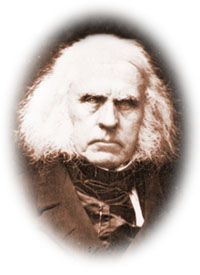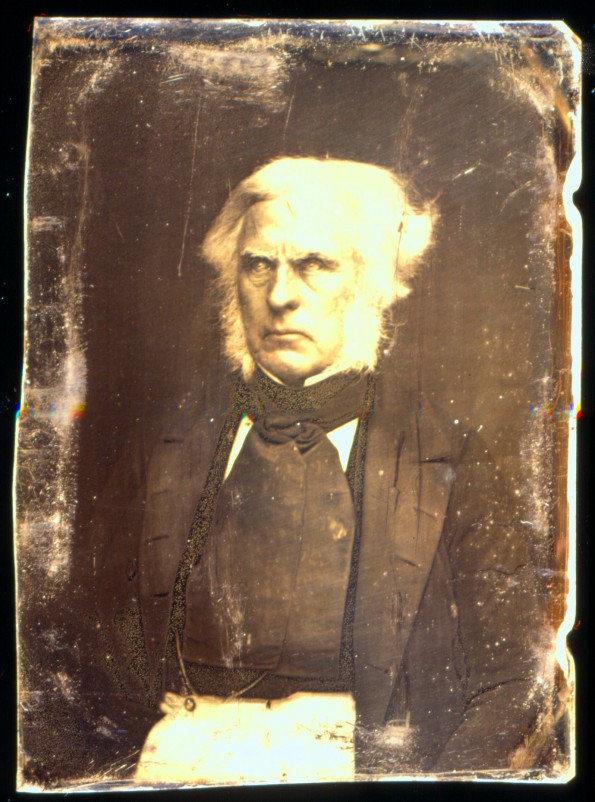 John McLoughlin was born in the province of Quebec in 1784 of an Irish Catholic father and a Scotch Presbyterian mother. An elder brother David became famous as the personal physician of the king of France. A sister Marie Louise was the Mother Superior of Canada’s oldest and most respected girls’ school, an Ursuline convent.
John McLoughlin was born in the province of Quebec in 1784 of an Irish Catholic father and a Scotch Presbyterian mother. An elder brother David became famous as the personal physician of the king of France. A sister Marie Louise was the Mother Superior of Canada’s oldest and most respected girls’ school, an Ursuline convent.
John was apprenticed to a doctor at the age of 14 and was licensed to practice medicine at 18. A famous uncle, Simon Fraser, obtained an appointment for him as medical officer for the North West Company, fierce competitor in the fur trade of the Hudson’s Bay Company.
About 1811 he married the French-Indian widow of Alexander McKay, who had been a member of the Astor party that started an American fur trading post called Astoria in 1811.
McLoughlin proved to be as good a business man as a medic, and soon became a partner in the North West Company. In 1821 North West merged with Hudson’s Bay, with the latter name surviving. Three years later, at the age of 40, McLoughlin was placed in command of the Pacific Northwest where he selected the site of Fort Vancouver.
McLoughlin slid into his new leadership with ease. A giant of a man, at least 6 feet 4 inches in height, he towered eight inches above most men of the day, and a full 12 inches above the ladies, who adored him.
One of his greatest assets was his influence over the Indians who called him “White Eagle: for his prematurely white hair,and who held in awesome respect. Had the Orgon Country remained British with McLoughlin in command, the Indian wars of the mid-19th century probably would never have occured.
He quickly built fort Vancouver into a profitable industrial center as well as a fur trading post. He exported lumber wheat, flour, salted salmon and even a small quantity of beer. Company profits soared and so did McLoughlin’s account with the head office in Canada, where most of his earnings remained for investment.
But when American settlers arrived in the Oregon Country, in the 1830’s and 1840’s McLoughlin made his fatal mistake. He advanced them credit and sold them provisions which permitted them to survive and establish an American foothold in the region. His North American boss, Sir George Simpson, and other Hudson’s Bay officials criticized him for his soft-headedness, to which McLoughlin replied in a famous letter:
“But what else could I do as a man having a spark of humanity in my nature? I did not invite the Americans to come. To be frank, I greatly regretted their coming, but they did come, covered with the dust of travel, worn out by fatigue, hardships and dangers incident to a very long and perilous journey…The Bible tells me that if my enemy is hungry, I must feed him, if naked, I must clothe him, but these destitute men and helpless women and children were not my enemies, and I am sure that God does not want me to do more for my enemies than these…”
